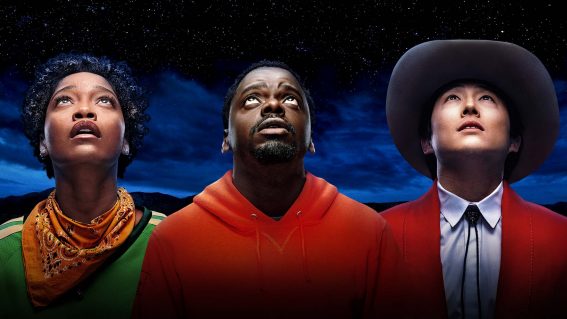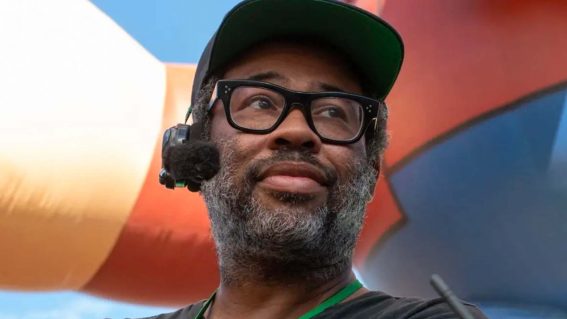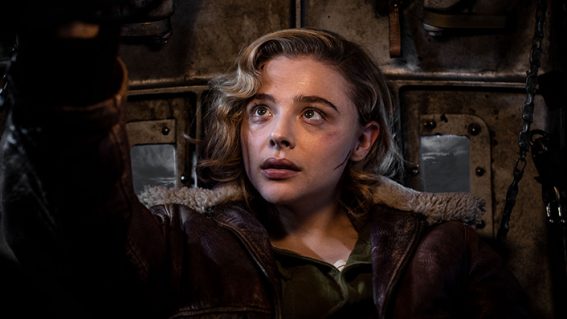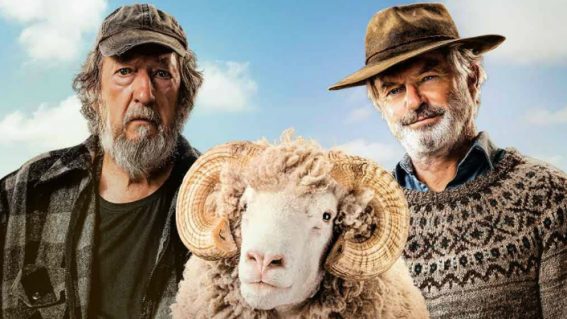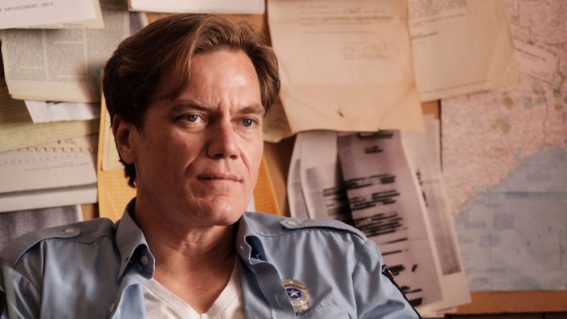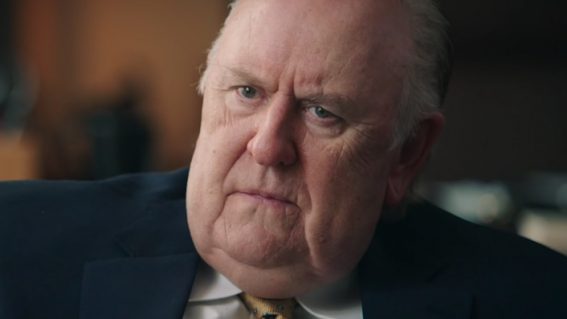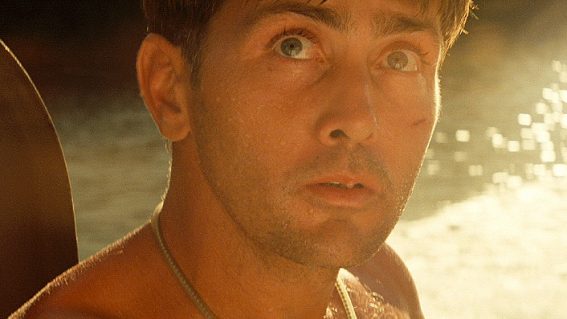Jon Hopkins on playing Laneway, scoring films and his stunning music vids
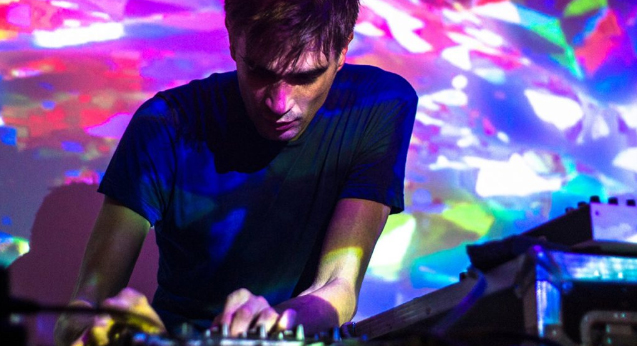
Mercury Prize nominee and composer of scores for Monsters and How I Live Now, English electronic producer Jon Hopkins is heading our way to play Laneway Festival on January 28 in Auckland’s Albert Park precinct.
Hopkins’ latest album Singularity has been on high rotate here at Flicks, so we were chuffed to chat to him about scoring films, his excellent music videos, and what we can expect from his live show.
FLICKS: You’ve got a background in film scores, but with the kind of music you make, “cinematic” is a probably a lazy description that’s been thrown at it from many a writer.
JON HOPKINS: Well, I think there’s a reason, maybe, why that word comes up, which is that I think one of my greatest influence was film scores, particularly in my earliest years of writing. There’s something about the ability of music to conjure images in a listener that I find really inspiring. And I worked on films but I kind of, in the end, gravitated towards the more abstract medium of just pure music because I love the fact that you get loads of different people having different experiences to it.
How do the different challenges look working on a film score compared to making music that’s purely driven by your own goals?
Something about scoring, I absolutely loved it, but in a way, it’s quite a lot easier because you have a set period of time, you have your emotion you’re trying to convey predescribed, and you also have guidance in the director. Whereas when you’re writing solo music, you’re absolutely out on your own with a completely blank canvas using, in my case, a medium that allows you to do literally anything. I mean, sonically you can make any sound using any other sound. And so in a way, you have to impose your own restrictions. You have to come up with your own parameters within which you want to work. Otherwise, it’d just be chaos.
So I might spend eight weeks working on one track for an album whereas when I did the score for Monsters, I think the entire thing was done start to finish in a month. I think that was 28 different cues. And it resulted in a 12 or 13-track album. So the speed of productivity is very, very different. But then, within the scoring world, for me anyway, there’s not been scope for sonic experimentation so much. So when I make a new album, that’s when I develop my sound. That’s how I find out how the next kind of generation of sounds I’m going to be interested in comes from and how to make them.
In scoring, I tend to, out of sheer necessity, gravitate towards the patches I’ve already made as a starting point at least and use piano a lot more, and that sort of thing. So yeah, there are many practices that make it easier in a way. But then, of course, the time pressure is very different.
Those parameters, as you say, can often make things a problem-solving exercise as much as a creative exercise?
Definitely. I mean, I’ve been lucky with directors I’ve worked with, because I’ve only ever done indie films. I mean, I worked on The Lovely Bones which was a big film, but I was working under Brian Eno who was really in charge of that.
All the things I’ve done as a solo composer have been indie. It’s a level where, to mention Monsters again, Gareth Edwards would be in the studio with me and would want to move a few notes around. But generally, he’s hired me because he likes my general approach. And he doesn’t want to mess with that.
And the same with Kevin Macdonald, the director of How I Live Now. They’re not just hiring a composer who can do any score, they’re hiring somebody that does a particular thing. And they don’t want to disrupt that flow so much, I think. Which has been quite a spoiled situation.
I do plan to go back to scoring at some point. Maybe after the next tour. And then, I think, maybe if I’m doing larger films, I might have to adapt to the process of working within a bigger machine and having more opinions, possibly, which are opposite of my own. We’ll see.
Can we expect a strong visual component to your performance when you’re here at Laneway Festival?
Yes, absolutely. This is one of the hallmarks really of how I’ve tried to build the campaign for this album, and the last one, which is just to have very strong videos come out and work with directors I really admire. And then, yes, we work on live versions of those videos, and we build a load of new visuals for tracks which don’t have videos.
My visual expert, Mr. Dan Tombs, is in charge of jamming along with me and making sure that however I’m improvising, he can have something that fits that. Who wants to look at me on the stage doing what I do? You can do that, and hopefully it portrays something of how the music’s being created, but I want to offer more than that, really. Because if you’re miles away and it’s a big crowd, you can’t even really see the detail of what I’m doing, I think. It’s important to have a visual element for many reasons.
Those videos that have come out from the album Singularity are stunning pieces of work. How involved are you in that process? And what was it like for you to see those as they came to life?
Well, it’s been really quite a lot of work for that stuff. I mean, I don’t have any directing skills, but I do talk with the people that make them at the early stages. And I will talk quite specifically about how the tracks came to life and the concepts behind them. And then the director will come up with an idea of how they might visualise that. And then I will usually have quite strong views on how that should progress and, in particular, how certain sections of tracks need to be responded to musically.
Perhaps it isn’t always obvious to a director why a certain drum fill or a certain change in pace needs to be represented visually. So I know which bits are important to me. And certainly, when it comes down to tight editing and cutting things to the beat, I’ll be incredibly particular about that to the extent that I might even make an audio file with just sort of audio markers that the editor can cut to literally with perfect accuracy.
I mean, Chris Cunningham was the first person to do that level of accuracy in music. And I think it’s always connected with me. Just that perfect synergy between sound and visuals. But yeah, I can be quite annoying to work with in that way.
As you mentioned in contrast to scoring work, a lot more time goes into your own writing as an artist. What are the things that fed into the development of this latest record over those years that it came together?
Well, primarily, I work on instinct and I let all the experiences I’m having in my life feed into what I’m doing. A lot of the concepts for this one came to me in the time living in California and having various adventures in the surrounding wilderness and also within my own mind. I wanted to feel really free just to write something different.
It’s one of the reasons I didn’t start it in London. It just seemed like I’d made everything in one room for ten years. And surely there would be some tangible difference in the output if it was started somewhere else.
So yeah, I really just tried to get deeper into those things. I started exploring different trance states, different psychedelic states, meditative states, and also DJ’ing a lot, and experiencing communal music, and the experience of playing techno to people, and trying to absorb that kind of energy.
And then also, when it comes down to the more ambient side, for me, a really simple piano melody like Echo Dissolve or Recovery is just as important. It’s part of the record. And it can’t all be highly complicated and programmed, sometimes it should just be a musician playing an instrument. And I’ve always been interested in the contrast between those two things.
So in some way, this record, I think, maybe sums up all the influences I’ve had over all of these years. All together in one thing. I guess we could say that about any of them, but still, it’s particularly true of this one.
As you get ready to head down to the Southern Hemisphere and spend a lot of time traveling, what do you do to occupy your time? Are you a film watcher? I mean, apart from sleeping and responding to emails, what keeps you going while you’re traveling?
Well, at the moment, I’m really into reading. I go through phases of not reading at all and just watching box sets or whatever. But right now, I’m kind of enjoying reading. I always like to meditate. I like to, as often as possible, go hiking and get into nature. And that’s one of the great things I love about going down to New Zealand and Australia is that it’s not hard to get out of the city and get out in the real world. Get out into nature.
There’s a lot of films I need to see. I feel like I’m behind on that. I kind of let that slip a little bit in the last couple of years. Actual movies. I need to have a proper session of catching up. You can watch stuff on the plane, but there’s a sort of flow of wine that tends to slightly eradicate the memories and the experience. And is it really the best place to watch films? I don’t know. Probably not.
Probably not. We got a terible statistic the other day that 30% of our readers watch films on their phones, and I was mortified about that.
The idea of watching something on something the size of your hand, to me, is pretty unpalatable. But there you go. I feel like people will bounce back in the other direction. And there’ll be a reverence of films again in that way.
To bring it back to Laneway quickly, I’m looking forward to the polar opposite of that idea of watching a film on a phone and the total kind of sensory immersion of seeing you play. Thanks for chatting today, Jon.
Cheers, mate. Bye.
Tickets for Laneway Festival on Jan 28 are available here

